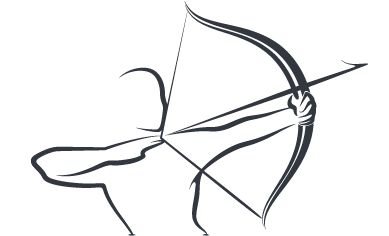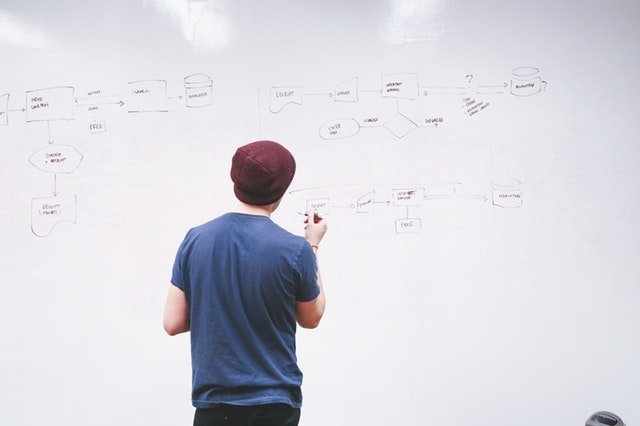John Dewey had something in his vision when he gave us the experiential learning philosophy of "Learning by doing". The veteran American philosopher predicted the 21st century's core thrust area when he advocated that education should be 'actual' and should 'happen' not just forced upon in the memory.
Advancements in Technology and Science have brought a wave of change in the classroom. Life is more demanding and so are the learning minds. The robots are turning humans and have more to do in the present age. At a time when the more you know the more you get to do, we cannot even imagine that the traditional ways of instruction in the classroom can train us for the jobs. Be it Social Sciences or Arts, learning based on experiences helps in creating authentic education.
Laboratories are not left to the sole discretion of Sci-Tech subjects. Inter-disciplinary studies and collaborative approaches have changed the whole scenario of curriculum and assessment. Multi-disciplinary learning is the key to careers and success now. Artificial Intelligence, Design Thinking, Creativity, Big Data and MOOCs have brought back the significance in the life of 'teachers and students' as they are together in the world of Project Based Learning alias PBL!
When we guide students about higher education and careers at EklavyaParv, we see that the missing link between them and the prospective careers is the lack of experiential learning. The fault lines are there in the educational institutions itself. For example, when companies offer Summer Internships and invite the students to participate in special projects for hands-on experiences, this task-based learning can bring fruitful additions to their skill sets. But there are no takers of these opportunities. EdTechReview says “Project-based learning (PBL) is a dynamic approach to teaching in which students explore real-world problems and challenges. With this type of active and engaged learning, students are inspired to obtain a deeper knowledge of the subjects they're studying.”
The 21st-century skills of Collaboration, Creativity, Communication, and Critical Thinking are important and can be avoided only at the cost of nothing. We may not decide to ignore the most pertinent factor governing human life- Educational Technology and Artificial Intelligence.
The impact of ‘assignments and tasks’ that bring interest back is a proven thing. In Kindergarten, what keeps them busy and ‘engaged’? It is the blocks and Toys that they feel they ‘make’. We may not be able to bring the global standards to our curriculum as it is designed to cater to our own needs and is affected by our own limitations as well. But, the ways we implement can possibly realise our Global Standard Vision. A trained mind can do wonders and an idle mind can kill future.
Curiosity and Questions, when they come from the pupil in the classroom, are the symbols of actual learning. They will ask you only when they are trying to do something. Engagement is the key and the idea behind PBL is that of making them interested in Creativity and Collaboration along with the development of their skills. In this second decade of the 21st Century, we can list four more aspects that we need to add to the students:
- Emotional Intelligence
- Creativity
- Adaptability
- Grit (Courage and Resolve)
It is the conviction of the mind that is going to safeguard us in the coming times. We won't need to fight against others, we shall be fighting against our own odds and issues. The challenges shall demand the first three aspects of our characters. PBL can prove an impressive tool to accomplish sustainability in the coming centuries. The world is going to feel that the need is of those who can actually do things because their hands and minds have been made familiar with tasks. PBL has a long way to go because the whole world of AI, Design Thinking and Data Analysis is rooted in this very concept.
Prof. Ramesh Sharma, an EdTech Expert and Innovative Educator, considers PBL as the primary requirement of modern day HigherEd. He says the Employability Enhancement can only be given through PBL. He further says that “It should start right from the schools and mere formality should not be done. A True Integration should happen as this will benefit both the schools and the higher education institutions. Once the interest in PBL is generated, it stays for the whole life with the students.”
Project-based learning connects you to employers and develops a strong Public Relations as well. There is no need to ask what works in getting good jobs in this age. Connections and references earned by working with good impression always work in your favour. If you are a student beyond secondary classes, your time of doing Career-Oriented PBL has already started. The more you engage yourself in this modern phenomenon, the better you are going to feel when you face your career selection dilemma.
In real life, we don't spend several hours at a time listening to authorities who know more than we do and who tell us exactly what to do and how to do it. We need to be able to ask questions of a person we're learning from. We need to be able to link what the person is telling us what we already know. And we need to be able to bring what we already know and experiences we've had that are relevant to the topic to the front of our minds and say something about them.”, said by Sylvia Chard on ETR tells us how PBL helps students in identifying learning as a basic thing that they do in their real life and not as a different deed otherwise considered burden or boring by kids.
While using EdTech tools for more than a decade, it has been realised that the way to Learn, Relearn and Unlearn is in taking assignments that engage everyone. We need not adapt to standards of PBL that are popular globally. Rather, we should make the PBL adapt to our vision and needs. Children are different at all levels and places, we have different levels of skills among educators as well. So PBL should be taken as a friend than a boss dictating tasks. The hashtag #bptMMDU2019 on Twitter can take you to a new aspect of PBL. The students are learning on Google Classroom as well.
Do not think that it is only in highly equipped labs or workshops that we can make PBL happen. It is about learning by doing, remember that. Involving the learners and making them feel the responsibility and sense of team, is the first step to life-long learning for them. When we use EduSoMedia (Education through Social Media) Model of Learning, we do not adhere to the globally established trends, rather we see what tools we can use to empower our own curriculum. Teachers need to be trained to learn, unconditionally. Their skill development should be the priority for the policymakers.
PBL does have the competence that changes the status-quo. The cliche and the stereotype that has prevailed over education need to be shattered. We need to adopt Project Based Learning and make our classroom do something that actually adds to competence. It is conclusive that 'Experiential Learning' has always been the core of real learning. The time-tested quote by Confucius justifies everything in favour of PBL and concludes this deliberation:
‘I hear and I forget. I see and I remember. I do and I understand.’







